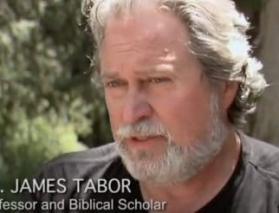The church doctrine of the Trinity says God is one essence existing as three co-equal and co-eternal Persons: the Father, the Son (Jesus Christ), and the Holy Spirit. But the New Testament (NT) repeatedly describes Jesus as subordinate to God to Father, which seems to conflict with them being equal. Some scholars label this a paradox. Raymond E. Brown acknowledges that “even in the New Testament works that speak of Jesus as God, there are also passages that seem to militate against such a usage.”
This apparent conflict is most evident in the Gospel of John. Traditionalists and others believe this gospel identifies Jesus as God more than perhaps the rest of the Bible. Therefore, some NT scholars refer to this apparent conflict as “the Johannine riddle.”
The Johannine Jesus indicates this subordination by claiming the Father sends him, empowers him, and gives him all authority in heaven and earth, including raising the dead and judging them. The paramount question is whether or not the Fourth Gospel portrays Jesus as essentially subordinate or functionally subordinate to the Father. According to the church doctrine of incarnation, Jesus could only have been the latter.
When the Johannine Jesus was accused of making himself equal with God (John 5.18), he vehemently denied it by revealing his essential subordination to the Father (vv. 19-47). He immediately said of himself, “the Son can do nothing of Himself, unless it is something He sees the Father doing; for whatever the Father does, these things the Son also does in like manner” (v. 19).* And he adds, “I can do nothing on My own initiative” (v. 30). He was referring to his having just healed the paralytic (vv. 8-9).
Closely associated with the subordination of the Son is his obedience to the Father. Yet Jesus being God and obeying God are incompatible concepts. Traditionalist C.K. Barrett explains, “It is simply intolerable that Jesus should be made to say, ‘I am God, the supreme God of the Old Testament, and being God I do as I am told.’”
If Jesus was essentially subordinate to the Father, then the Father was superior to Jesus. Indeed, the Johannine Jesus said, “the Father is greater than I” (John 14.28). The word in the Greek text here translated “greater” is meizon, meaning greater in rank and dignity. Obviously, such a difference between the Father and the Son does not accord well with the traditional view of their supposed equality.
Jesus’ subordination to God is related to his dependence upon God, which further indicates he could not have been God. For Jesus depended upon God’s Spirit in order to perform his miracles. The Apostle Peter preached, “Jesus the Nazarene, a man attested to you by God with miracles and wonders and signs which God performed through Him” (Acts 2.22). And Peter later preached likewise, “You know of Jesus of Nazareth, how God anointed Him with the Holy Spirit and with power, and how He went about doing good, and healing all who were oppressed by the devil; for God was with Him” (10.38). So, Peter attributes Jesus’ powers to God being with him, not Jesus being God.
The title applied to Jesus in the NT which signifies his subordination to the Father more than any other title is “servant.” Peter preached to Jews, “the God of our fathers, has glorified His servant Jesus,… For you first, God raised up His Servant, and sent Him to bless you” (Acts 3.13). And Jesus’ disciples later prayed to the Father, “Your holy servant Jesus, whom You anointed,” so that “signs and wonders take place through the name of Your holy servant Jesus” (4.27, 30).
Second century church fathers sometimes identified Jesus as God’s “servant” (Greek pais). But later fathers discontinued it. Joachim Jeremias observes that “the designation of Jesus as pais theou [servant of God] is found in Gentile Christian writings up to 170 CE only at 11 places and in three works…. From the 5th century pais disappears completely as a term for Christ…. To the Gentile Church it was offensive from the very first because it did not seem to bring out the full significance of the majesty of the glorified Lord.” Identifying Jesus as Servant clashed with the view that he is God. Yet the Quran says of him, “The Messiah does not disdain to be a servant of God” (4:172).
The Apostle Paul often relates in his NT letters the essential subordination of Christ to God. He says, “Christ belongs to God,” and “God is the head of Christ” (1 Corinthians 3.23; 11.3). Thus, Paul certainly would have said that God is greater than Christ.
Indeed, Paul further relates that it is God the Father “who is the blessed and only Sovereign” (1 Timothy 6.15). He explains that this will be demonstrated when the Father “will bring about at the proper time” Christ’s return to earth. If the Father is the “only Sovereign” (Greek monos dunastes), and Paul says this in relation to Christ and his second coming, then Christ cannot also be equal in sovereignty to the Father.
The signal signpost of Jesus’ essential subordination to God is Paul’s prophecy about Jesus’ final, revelatory act regarding the kingdom. Paul says of Jesus, “when He delivers up the kingdom to the God and Father,… then the Son Himself also will be subjected to the One who subjected all things to Him, that God may be all in all” (1 Corinthians 15.24, 28; cf. 1 Chronicles 29.11). Here is the ultimate act of subordination, and it is a voluntary one. Oscar Cullmann calls it “the key to all New Testament Christology.”
Jesus’ subordination to the Father is also seen in Paul’s prayers. After each salutation in his letters, he often adds that he gives thanks to God in prayer for those to whom he writes. Even though he occasionally appends Jesus’ name to his petitions and heartfelt thanks made in prayer, Paul relates his view about the Father’s essential preeminence over Jesus by always addressing these prayers solely to “God (the Father).”
In sum, Jesus’ essential subordination to the Father shows that Jesus was not God.
* All scripture quotations are taken from the New American Standard Bible.
See also “What Is the Subordination of the Son?”
…………….
To see a list of titles of 130+ posts (2-3 pages) that are about Jesus not being God in the Bible, with a few about God not being a Trinity, at Kermit Zarley Blog click “Chistology” in the header bar. Most are condensations of my book, The Restitution of Jesus Christ. See my website servetustheevangelical.com, which is all about this book, with reviews, etc. Learn about my books and purchase them at kermitzarley.com. I was a Trinitarian for 22 years before reading myself out of it in the Bible.














